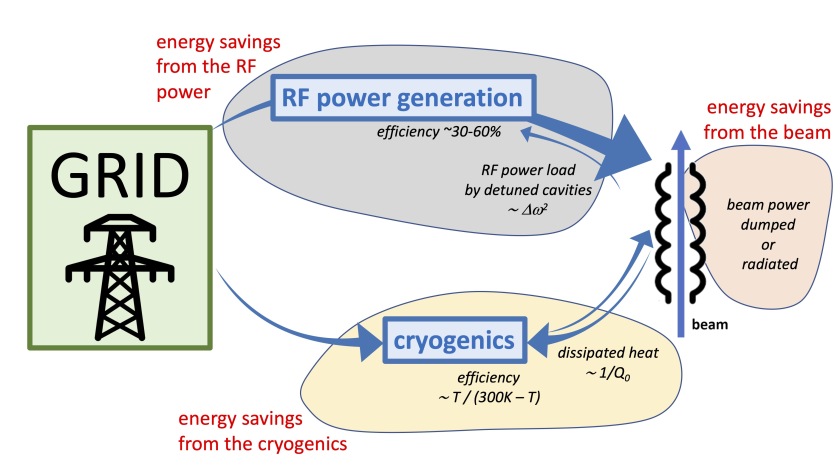Institute Science and Technology of Accelerating Systems
iSAS
Modern particle accelerators will always require a large amount of energy to operate. Keeping energy consumption as low as reasonable possible is an unavoidable challenge for both research infrastructures (RIs) and industry, which collectively operate over 40,000 accelerators. Based on state-of-the-art technology, the portfolio of current and future accelerator-driven RIs in Europe could develop to consume up to 1 % of Germany's annual electricity demand.
With the ambition to drastically improve the sustainability of RIs and to enable Europe’s Green Deal, HORIZON Europe is funding the collaboration "Innovate for Sustainable Accelerating Systems (iSAS)" to broaden, expedite and amplify the development and impact of novel energy-saving technologies to accelerate particles.
For many frontier accelerators superconducting RF (SRF) systems are the enabling technology. iSAS will innovate those technologies that have been identified as being a common core of SRF accelerating systems and that have the largest leverage for energy savings to minimize the intrinsic energy consumption in all phases of operation (see image).
HZB/BE-IAS is one of the lead laboratories in iSAS and contributes to three key areas expected to significantly improve SRF accelerator operating efficiency:
- Development of ferro-electric fast reactive tuners (FE-FRT) to actively and rapidly compensate microphonic detuning of narrow-bandwidth CW SRF cavities without the need for mechanical tunin.
- Development of “intelligent” digital low-level RF systems for efficient control of the full SRF cavity system, including high-efficiency solid-state amplifiers and the FE-FRT system.
- Development of Nb3Sn-on-Cu SRF cavities for 4.2 K operation (rather than ≤ 2 K) to for an enhanced cooling efficiency and reduced technical complexity of cryogenic plants.
Links

